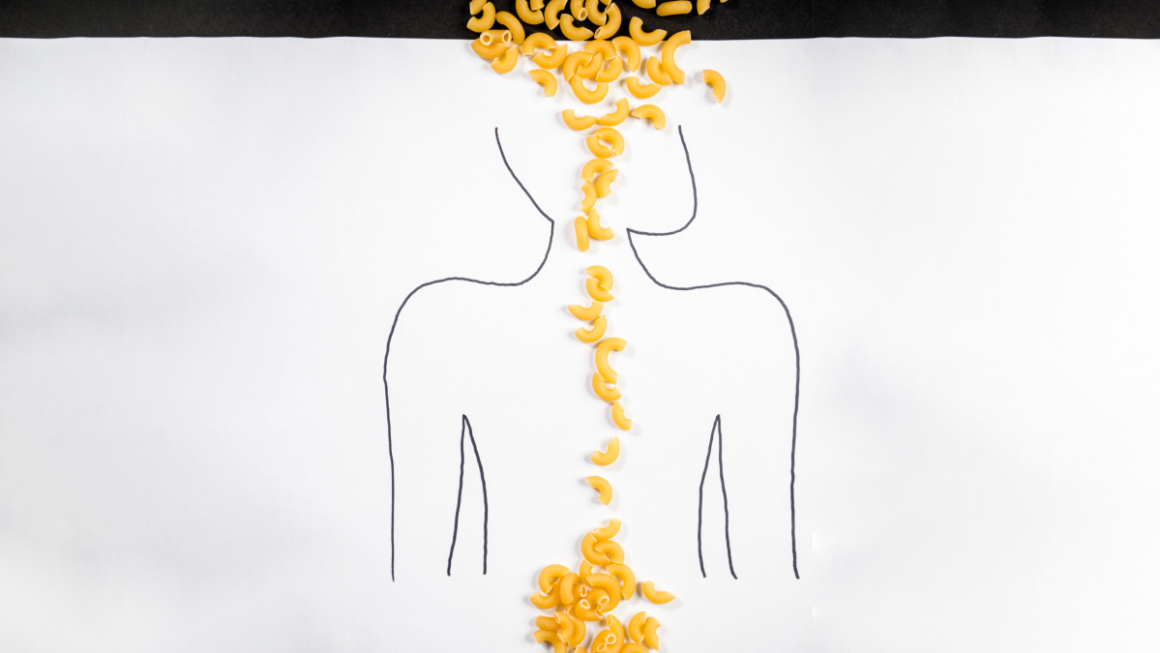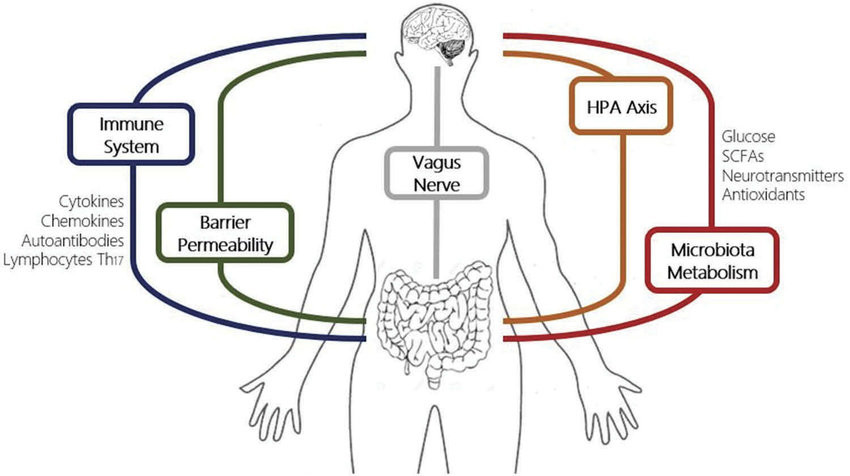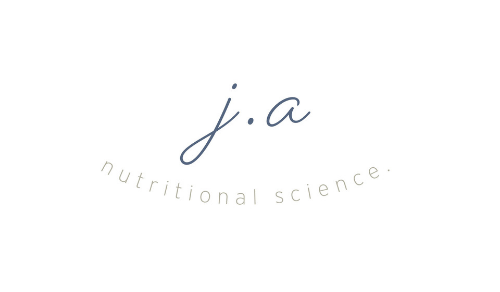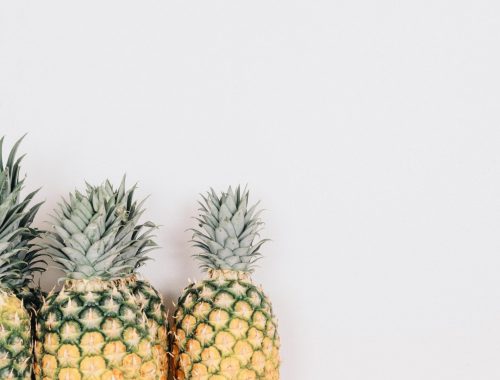
The Gut-Brain Axis
The Gut-Brain Axis: Exploring the Connection Between our Gut and Mental Health
The human body is an intricate web of connections, and one of the most fascinating is the relationship between our gut and brain. It turns out that the gut, often referred to as our “second brain,” communicates with our central nervous system via the vagus nerve and plays a crucial role in our mental health and overall well-being. In this post, we delve into the concept of the gut-brain axis, exploring how the health of our gut microbiome influences our mental health and highlighting practical ways to support this intricate connection.

Understanding the Gut-Brain Axis:
The gut-brain axis is a bidirectional communication pathway between the gut and the brain. It involves numerous signaling mechanisms, including neural, hormonal, and immune pathways. The gut, specifically the gut microbiota, produces chemicals and neurotransmitters that directly influence our brain’s functioning and mood.
Gut Microbiota and Mental Health:
Our gut is home to trillions of microorganisms, collectively known as the gut microbiota. Research has revealed a strong correlation between imbalances in the gut microbiota and mental health conditions such as anxiety, depression, and even neurodegenerative disorders. A healthy gut microbiome plays a vital role in producing neurotransmitters like serotonin (the happy hormone) and regulating inflammation, both of which impact our mental well-being. In fact, the gut provides approximately 95% of total body serotonin.

Strengthening the Gut-Brain Connection:
1. A Nutrient-Rich Diet: Eating a diverse range of plant-based foods, high in fibre, can help nourish the gut microbiota. Include probiotic-rich foods like yogurt and fermented vegetables, as well as prebiotic foods like garlic, onions, and bananas, to promote a healthy balance of gut bacteria.
2. Stress Management Techniques: Chronic stress can disrupt the gut-brain axis. Implementing stress reduction techniques such as mindfulness meditation, deep breathing exercises, and regular physical activity can help rebalance the gut microbiota and improve mental health.
3. Prioritising Sleep: Quality sleep is vital for the health of our gut-brain axis. Establish a regular sleep routine, create a sleep-friendly environment, and practice relaxation techniques before bed to support better sleep quality.
4. Regular Exercise: Physical activity has been linked to a more diverse and healthy gut microbiota. Engage in regular exercise to promote gut health and enhance mental well-being simultaneously.
5. Gut Cleansing and Healing: In some cases, repairing the gut flora may require specialised interventions, such as a guided elimination diet, identifying potential food sensitivities and addressing gut dysbiosis can alleviate digestive issues, improve nutrient absorption, and positively impact mental health.
Conclusion:
The gut-brain axis is an increasing area of research highlighting the profound connection between our gut microbiota and mental health. By nurturing our gut with a wholesome diet, managing stress, prioritising sleep, and incorporating regular exercise into our lives, we can support a healthy gut-brain axis and promote optimal mental well-being. Understanding and tending to this essential relationship between our gut and our mental health can lead to a happier, healthier, and more balanced life.
References:
1. Mayer, E. A. (2011). Gut feelings: the emerging biology of gut-brain communication. Nature Reviews Neuroscience, 12(8), 453-466.
2. Cryan, J. F., & Dinan, T. G. (2012). Mind-altering microorganisms: the impact of the gut microbiota on brain and behaviour. Nature Reviews Neuroscience, 13(10), 701-712.
3. Foster, J. A., & Neufeld, K. A. (2013). Gut-brain axis: how the microbiome influences anxiety and depression. Trends in Neurosciences, 36(5), 305-312.
4. Moloney, R. D., Desbonnet, L., Clarke, G., Dinan, T. G., & Cryan, J. F. (2014). The microbiome: stress, health and disease. Mammalian Genome, 25(1-2), 49-74.
5. Dinan, T. G., & Cryan, J. F. (2017). Gut instincts: microbiota as a key regulator of brain development, ageing, and neurodegeneration. Journal of Physiology, 595(2), 489-503.






